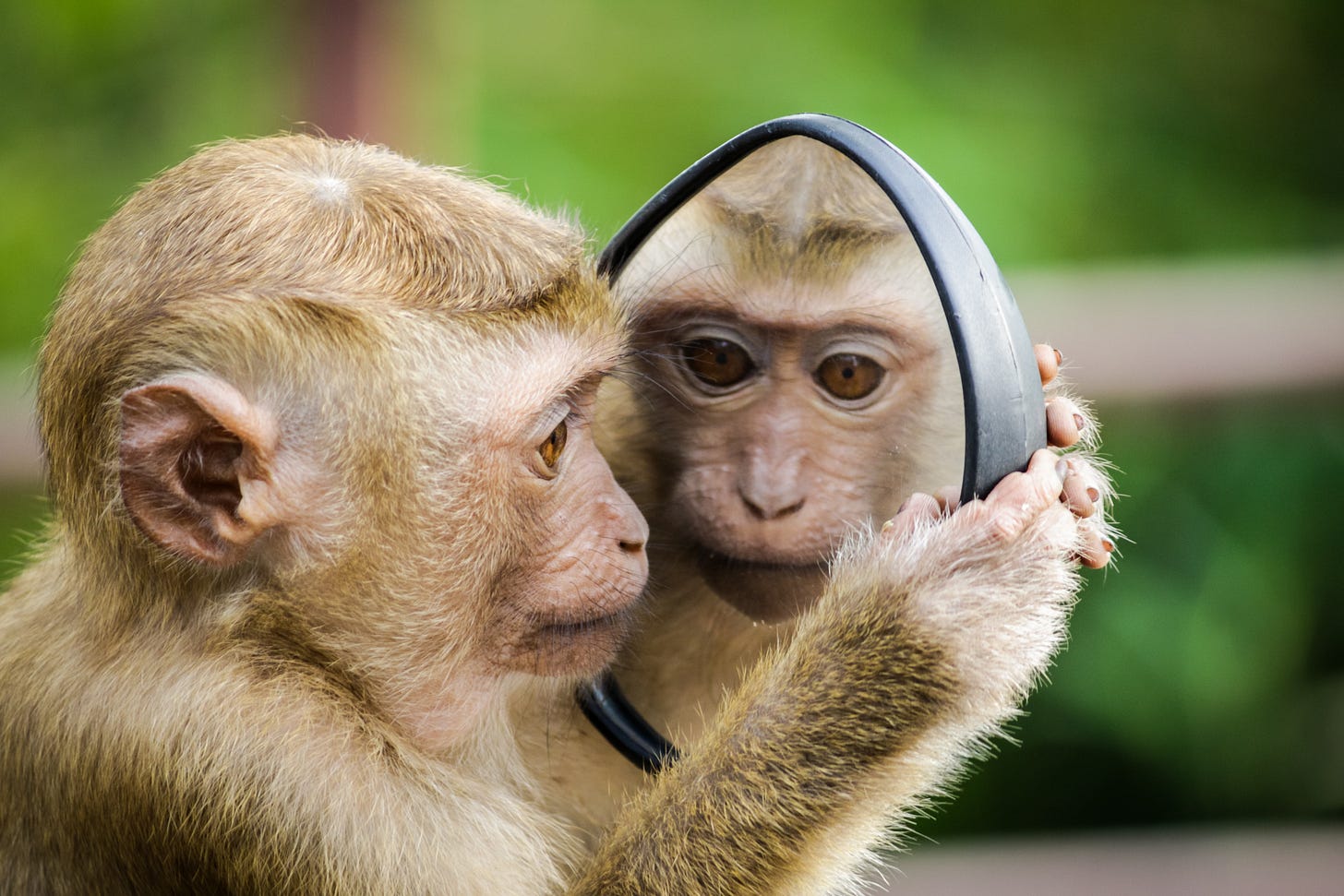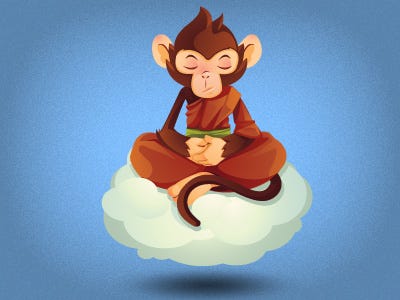Taming the monkey mind
(3 Min Read) Write down thoughts to free your mind.

I believe I suffer from a monkey mind.
No, I don't think like a monkey, or maybe I do. I don't know what a monkey thinks about. I am sure they don't think about programming or writing a blog. But then again, how would I know 🤔
This is an example of how my mind jumps from one thought thread to another. Similar to a monkey jumping from one tree branch to another.
As I write this post on Sunday 2/20/2021 at 12:57 AM, these are the thoughts going through my head right now:
Write about monkey mind (this post)
Maybe get a glass of wine.
Thinking about three things I need to get done on Monday before meetings start
What should I get to eat with my wine? I don't have cheese.
I need to write a blog post on lowering customer threshold, developing team thinking.
A bunch of documents I need to finish next week for office work
Finding time to finish the code review that's been pending for two days
Not sure how much pancake batter is available to make breakfast for the family in the morning
It's a mixed bag and my monkey mind just jumps from one thread to another. It’s exhausting. 🐒🥱
And the worst part is, nothing gets done. This post is on how I tame it.
Meditation for the monkey mind 🧘♀️🐵🧠

I've tried meditation. This 2 min video about how to train your monkey mind is very useful and effective. I highly recommend watching it.
The problem I have with this method is what happens when the meditation ends. During meditation, my monkey mind is calm. It focuses on the breath. My mind wanders, but it comes back to breathing. But then the meditation ends. And in few minutes, my monkey mind starts jumping from one branch to another. Back to square one. 🤦♂️
Monkey mind = Context switching
The monkey mind is nothing but context switching between tasks. I've written about the high cost of context switching and how batching helps in my previous posts.
The part that’s missing from that post is how to prepare for batching. And the answer is by taking a brain dump.
Brain dump 🧠 ⬇️📄
Write down all the thoughts from your brain to a notebook. The keyword is “all”.
Once you take a brain dump, your mind is free. All the tree branches are gone, and there is nothing for the monkey to jump on. The monkey can finally sit down. Once calm, the monkey mind can then focus on a single task.
I take brain dumps twice a day. Once at the end of the workday and then just before going to bed. The first dump allows me to leave the work behind and get back to the family. And the second one allows me to sleep.
Taking a brain dump also helps with batching. All things-to-do is in an unsorted list. When it's time to work, I sort them by function and get to work. For example, here is the above list sorted
Write about monkey mind (this post)
I need to write a blog post on lowering customer threshold, developing team thinking.
————————————
Maybe get a glass of wine
What should I get to eat with my wine? I don't have cheese.
Not sure how much pancake batter is available to make breakfast for the family in the morning
————————————
Thinking about three things I need to get done on Monday before meetings start
Finding time to finish the code review that's been pending for two days.
A bunch of documents I need to finish next week for office work.
Why taking a brain dump quiets the monkey mind?
Our minds jump from one thought to another to ensure that we don't forget either of them. That's just how our brain works. If we don't think about something for a long time, we forget. To ensure we don't forget something important, our mind keeps on jumping to the other threads to refresh it.
The monkey mind is actually our friend trying to ensure we don't drop the ball on important things. But sometimes it gets overwhelmed because we have too many thoughts. Taking a brain dump helps tame it.
When written down, we can refer to thoughts later. As a result, the monkey mind doesn't have to jump. It can sit quietly and focus on a single thing.
I hope you find this post useful. Please consider subscribing to this free newsletter.
Also, don't forget to share this post with your friends and colleagues who could use it to tame their monkey mind.
Cheers!!!







Love this strategy! Well done, Mayank!